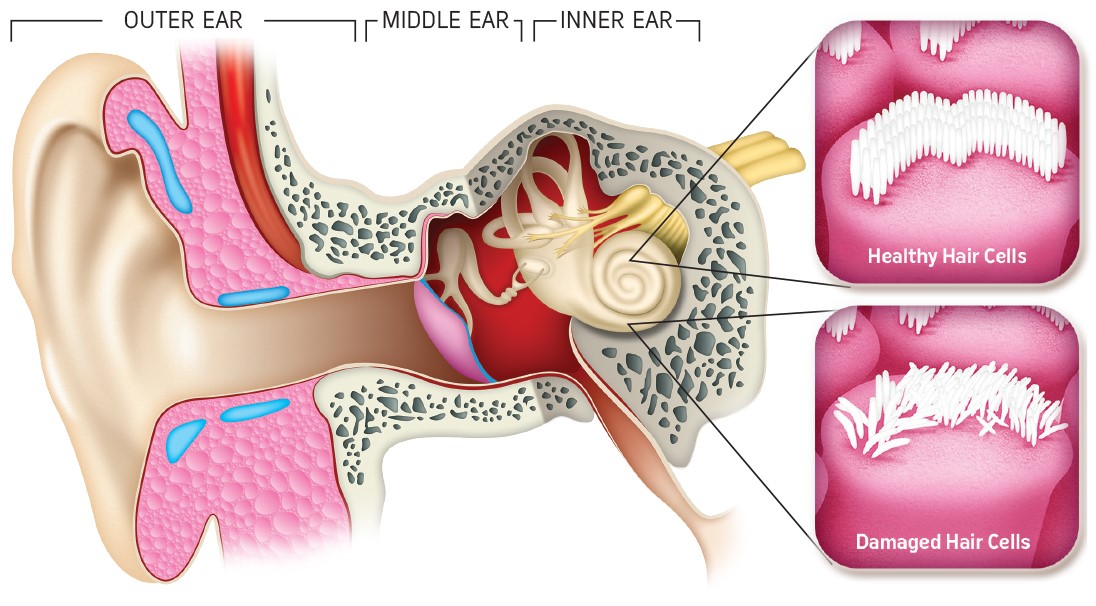Ear & Hearing
Appointment Request
How We Hear

Ears are the organs that allow us to experience sound. They also play an important role in balance. Ears are complex and divided into three different sections: the outer ear, the middle ear and the inner ear. All three are involved in hearing but only the inner ear is responsible for balance.
All three components work together to allow us to hear as we do. The sound first enters the ear at the pinna where it is funnelled down the ear canal. The ear canal has hairs and glands that produce wax called cerumen. Cerumen keeps the ear canal moist and lubricated. Sound travels through the ear canal where it meets the tympanic membrane or eardrum.
The vibrations at the eardrum set the bones of the middle ear into motion. The three bones are called the ossicles which include the malleus, incus and stapes. These three bones are the smallest bones in the human body. The third bone, the stapes, transmits the vibrations of the middle ear to the inner ear through the stapes footplate include the malleus, incus and stapes. These three bones are the smallest bones in the human body. The third bone, the stapes, transmits the vibrations of the middle ear to the inner ear through the stapes footplate.
The inner ear has two functions; the first is hearing and the second is balance. It is a warren of tubes filled with fluid encased within the temporal bone of the skull. The bony tubes also contain a set of cell membrane lined tubes. The bony tubes are called the bony labyrinth filled with perilymph fluid, which the membranous labyrinth tubes are filed with endolymph. This is where the cells responsible for hearing are located (the hairy cells of Corti).
The bony labyrinth itself has three sections. 1) The cochlea is responsible for hearing, 2) the semicircular canals have function associated with balance, and 3) the vestibule which connects the two and contains two more balance and equilibrium related structures, the saccule and utricle. The final structures of the inner ear are the round window and the eighth cranial nerve (cranial nerve VIII) which is composed of the vestibular nerve (balance) and the cochlear (hearing) nerve.


